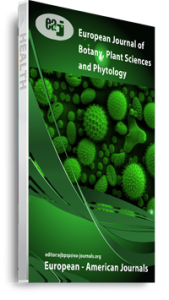Okra (Abelmoschus esculentus L.) varieties like OH-152, Arka anamika and unknown variety and sunflower (Helianthus annuus L.) varieties like S-278, Hysun-39 and unknown variety after bio-priming with leaf extracts of Acacia nilotica (L.) Willd. ex Delile Sapindus mukorossi (L.) and microbial antagonists (Trichoderma harzianum and Rhizobium meliloti) at different time intervals (10, 20 minutes) were screened against root infecting fungal pathogens (Macrophomina phaseolina, Rhizoctonia solani and Fusarium spp) and growth of crop plants. Results obtained showed that among all the three varieties of sunflower, variety S-278 after bio-priming with A. nilotica leaf extract for 10 minutes and T. harzianum conidial suspension for 20 minutes was found to be most effective for the establishment of plants and completely control the colonization of M. phaseolina followed by Hysun-39 and unknown variety. Whereas in case of okra, variety OH-152 after bio-priming with A. nilotica leaf extract, T. harzianum and R. meliloti cell/conidal suspension for 10 minutes was recorded to be most effective for the complete inhibition of M. phaseolina and significant elevation of growth of plants followed by A. anamika and unknown varieties
Keywords: Bio-priming, Okra, Root Rot Fungi, Varieties, sunflower

